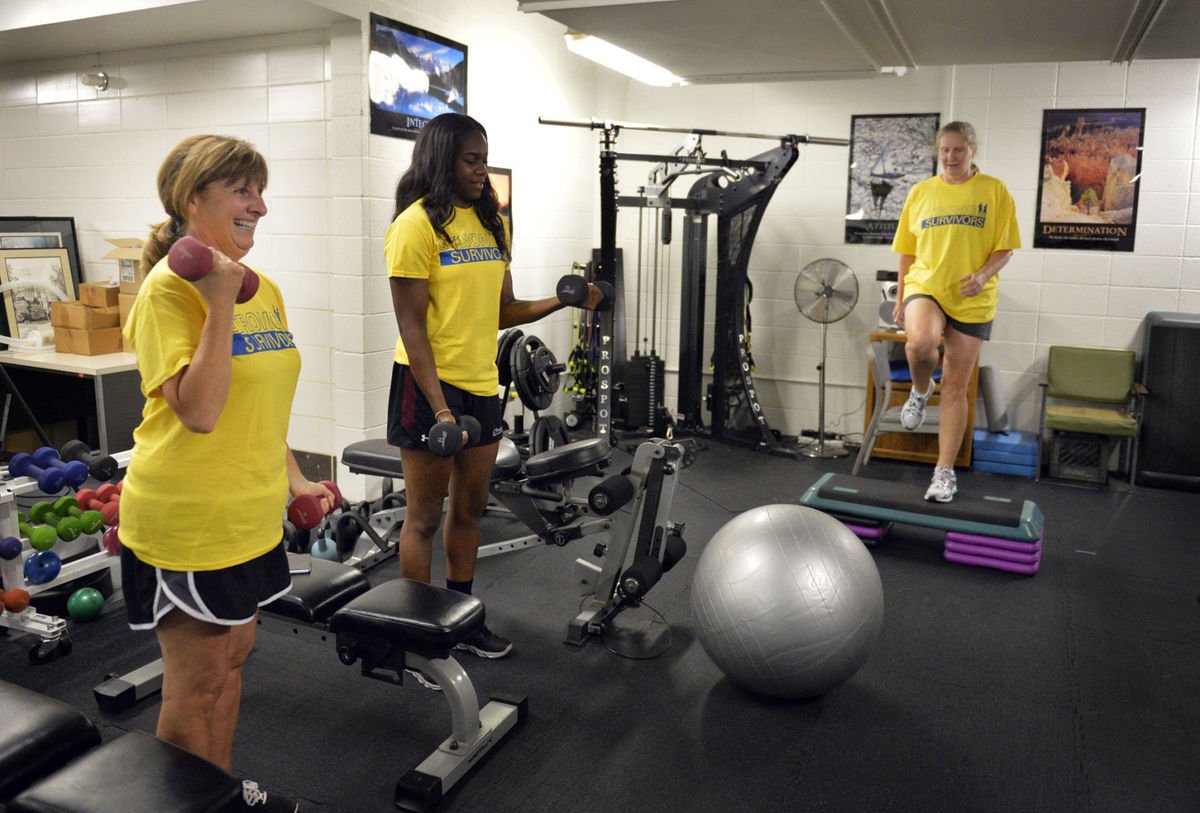
Editor’s note: This is the first in a four-part series on the Community Health Needs Assessment completed by SIH. Next week’s story will be on diabetes and obesity and their roles in heart disease.
When Southern Illinois Healthcare released findings from its Community Health Needs Assessment in March, they chose three health priorities for the region: Cancer, cardiovascular disease and its risk factors of diabetes and obesity, and mental health.
The cancer statistics are staggering for the SIH service area that includes Franklin, Perry, Jackson, Johnson, Saline, Union and Williamson counties. The rates for all cancers are higher than the state average, except in Jackson County.
Perry County cancer rates for lung, breast and colorectal cancers all exceed the state averages. In Franklin, Johnson, Saline, Union and Williamson counties, the rates of lung and colorectal cancers are higher than the state average. Jackson County rates of colorectal cancer also exceed the state average.
Smoking rates for Southern Illinois exceed the state and national averages, too. In Southern Illinois, 26.8 percent of adults are smokers. The national rate of adult smokers is 16.8 percent.
Screening, which catches cancers when treatment can be successful, is still not happening as recommended in Southern Illinois. More than 36 percent of women age 40 and older have not received a mammogram within the past year, and more than 35 percent of adults age 50 and older have not had a colonoscopy or sigmoidoscopy.
The goals of SIH and its community partners are to change those numbers by increasing numbers of adults who get recommended screenings, reduce the use of tobacco products, increase the numbers of people who quit smoking and reduce exposure of nonsmokers to secondhand smoke.
For Dr. Mary Rosenow, medical director of SIH Cancer Institute, the idea is simple.
“We need to develop the same type of screening programs for lung and colorectal cancer that we have for breast cancer,” Rosenow said. “Screening is feasible and saves lives.”
Lung cancer is most often diagnosed in its late stages, with two-thirds diagnosed in Stages 3 and 4. One recent change, Medicare paying for lung cancer screening, may make screening available to more patients. SIH will begin a screening program this year.
SIH Cancer Institute is part of a collaborative team that includes Washington University and BJC Health System in St. Louis and cancer centers across the Midwest that is working to develop best practices in lung cancer.
“We will utilize what they’ve learned to be more successful,” Rosenow said.
Rosenow also encourages primary care physicians to talk to their patients about smoking. The best way to prevent lung cancer is to not smoke. Those who do not smoke should not start, and those who do should quit.
Caleb Nehring, health systems manager for the American Cancer Society, said screening for colorectal cancer is a focus for many national groups.
“Back in the 1960s, people were promoting pap smears. In the 1980s, it was the same for breast cancer and mammograms,” Nehring said. “Now it is colorectal cancer’s turn.”
National Colorectal Cancer Roundtable has developed 80 percent by 2018, a movement in which more than 1,000 organizations have committed to substantially reducing colorectal cancers as a major public health program and working to screen 80 percent of American adults by 2018.
In Illinois, only about 65 percent of residents ages 50 to 75 receive screening. Nehring calls it a huge problem, especially since screening and prevention use the same tool — a colonoscopy.
“Colorectal cancer can be prevented through screening,” said Jennifer Badiu, system director, SIH Cancer Center. “Rather than a screening procedure, it is a prevention procedure.”
“During colonoscopy, they find polyps and snip them out because cancer starts in polyps,” Rosenow said.
Nehring recommends all adults age 50 and older talk to their physicians about colorectal cancer screening, earlier if there is a family history of colorectal cancer.
Dr. Phil Anton, associate professor of exercise science and director of SIUC Cancer Rehabilitation Laboratory and Strong Survivors Program, preventing cancer means being active.
“People who are physical active during and after treatment have fewer occurrences of cancer,” Anton said.
SIU is uniquely situated to offer free physical training for any person who have survived cancer or has served in a caregiver role, Anton said. The program at the Cancer Rehabilitation Lab helps patients, but it also educates and provides hands-on training for students and helps with research.
“I consider myself lucky,” Anton said. “I am required to do research through my job as a professor at SIU, and I get to do it in an area that provides a great community service.”
To qualify to work out at the lab, survivors and caregivers must attend a 12-week Strong Survivors class that includes physical activity and classroom training in nutrition. Then, they work one-on-one or in small groups with a student who serves as a personal trainer.
Strong Survivors will begin classes in the spring that has openings. Any survivor may sign up, regardless of when the cancer was diagnosed. Strong Survivors meet two evenings each week at John A. Logan College in Carterville. Once the class is over, survivors may continue to work out at SIU or John A. Logan.
Anton stressed that the same things that prevent re-occurrences in cancer survivors, physical activity and a healthy diet filled with fruits and vegetables, can help prevent cancer in the general population, too.
Nehring said there are three main things in preventing cancer: Not smoking and quitting if you do, getting physical activity, and eating a healthy, balanced diet.




